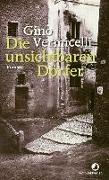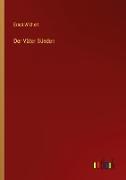Letters, Volume 6 (1*-29*)
BücherAngebote / Angebote:
Most of the works of St. Augustine of Hippo (354-430) have been extant and studied for centuries by Christians throughout the world. Since this Doctor of the Western Church has long been the best known and most widely read of the Latin Fathers, it is so much more unexpected that a previously unknown work should be found. Johannes Divjak found not only a single work but in fact a whole collection of letters, which he published in a critical Latin edition in 1980.This volume contains the first English translation of these newly discovered letters. The letters range in size from short memoranda to long treatises on various subjects. In addition, there are three other previously unknown letters: two written to Augustine by Consentius, a North African rhetorician, and one written by Saint Jerome to Aurelius of Carthage.These letters, taken as a whole, present a vivid and fascinating view of life in North Africa at the beginning of the fifth century. In addition to the comments about ecclesiastical and episcopal affairs, there are also letters on various threats to peace and security common in this period of the late empire, on slavery and the growth of the slave trade, and on Roman involvement in African affairs, both ecclesiastical and civil.There are letters dealing with moral questions and pastoral problems, in both marriage and the family, as well as in larger areas of doctrine and discipline in the Church. The conflict resulting from the end of the Donatist schism becomes clearer, as does the refrain of desperation stemming from an inadequate supply of clergy for parishes needing to be served. A large number of these letters illustrate the day-to-day worries of a fifth century North African bishop: clerical scandals, Church finances, people seeking sanctuary in a church (and the ensuing problems with the civil authorities), and disputed episcopal succession.Until the time as scholars agree on a numbering system that will integrate these letters into a previously known corpus of Augustinian letters, they are numbered 1*-29*, with the asterick added to distinguish them from letters 1-29 of the traditional body of letters.
Folgt in ca. 15 Arbeitstagen




